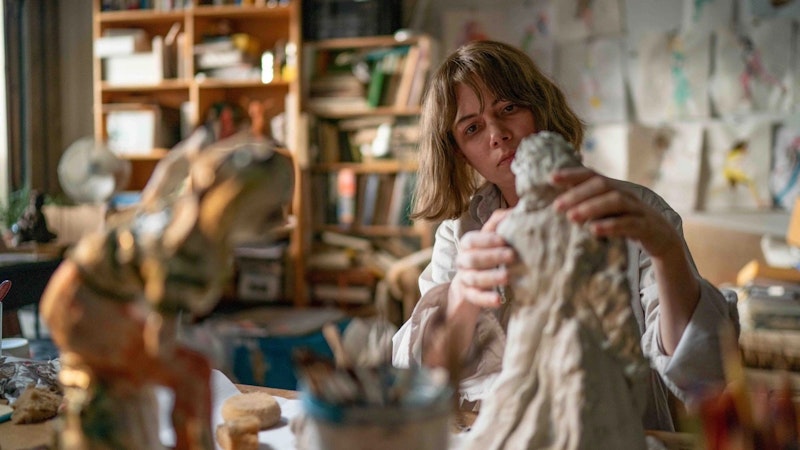Rounding out the holiday season is always a feeling of having not watched enough new releases. Seeing innumerable critics best-of-year-XXXX lists, I’m reminded of how few of the films that interested me I went out of my way to see, and how many of the consensus films I found anything more than middlingly palatable. It also reminds me that I wouldn’t want to be a film critic professionally and become vocated to that type of cinema, even if it would afford me access and the ability to boost those smaller films that I care about.
This year I once again gave up my half-hearted attempts at trying to find 10 new releases that could stand as an informative collection against the sea of films I-did-not-but-wish-I-did see. The standard for what I’d want to put out is apparently too high for the amount of work I’d want to put towards it. And that’s fine, there’s plenty of critics already doing great work at that. I know, too, that I’d play a cheeky game like many of those posting Screen Slate first-watches lists, and include things outside of traditional cinema. I’d be remiss not to give a shout to centenary running of the Le Mans 24 Hours (a revitalization for the history books in the greatest motor race’s storied 100 years) and IndyCar’s (possibly, tragically final) race at Texas Motor Speedway—I find myself agreeing with the effusive report from IndyCar journalist David Land, this race was uniquely IndyCar, and the kind that gives hope for the series (except that it’s no longer part of it).
Yet making some sort of list ultimately feels reductive to me, because only one movie stood out in a way that no matter what I saw it would have to occupy the top spot: Showing Up. Kelly Reichardt’s eighth feature is a delicate scolding of the class conflict endemic to the art world, where those that have try to ignore it while going about their everyday lives, and those that have not have to expand their energy lifting the crushing weight of life rather than focusing on their own expression. But even though the relationship between Lizzie (Michelle Williams—giving her best performance in a Reichardt film since Meek’s Cutoff) and Jo (Hong Chau, one of the most criminally under-utilized actresses working today) often seems impossible because of the tenant/landlord relationship, the film isn’t entirely dour. As I noted in my essay for Paste, Showing Up is a film about, above all else, community.
Community is one of the most mutable words in the United States—where conservatives will praise it as the basis of down-home, small-town values yet attack any ideology for which it’s the basis of political organization (i.e. direct democracy, anarchism, and, of course, communism). In artistic circles, however, a truer nature of the word, and its actualizing potential, is revealed. When we speak of artistic communities, we don’t necessarily talk about assembly lines or blanket consistency; we instead speak of collections of individuals expressing themselves together, each unique but collectively we can pull the camera back and reveal a culture.
Showing Up is all about the tension that the capitalist superstructure presses upon these ideals. I think of that utopian space, the arts college that Lizzie works at as a bureaucrat in order to have access to materials and pay rent to her fellow, more successful, alumnus who has gone from friend to feudal ruler because she went on a path that opened up interpersonal exploitation as a means to achieve greater personal comfort. This isn’t to say that Showing Up is a straight systems analysis; it is, like all of Reichardt’s work, so much more human than that. What makes her films so beautiful, so effective, is precisely that they don’t play that way, they’re not outright polemical. Instead, they’re stories about people that feel real, with complex, confusing, and contradicting emotions as they live amongst the uncomfortable and unfair world they’ve been thrust into. No other film this year has asked me to stop and reflect so much.

